COLLECTIVE MISSION
“We cannot destroy white supremacy until we address the internal contradictions in ourselves and in our communities that allow white supremacy to continue to flourish”
– Dr. Runoko Rashidi
Who We Are
The Best Starts for Kids Liberation and Healing from Systemic Racism, aka Liberated Village strategy awarded a three-year contract to fifteen community-based grassroots organizations that will work collectively together to co-design and build a culturally responsive transformative education system that will seek to educate and liberate Black and brown Scholars (students) in King County.
Scholars will enroll in the Liberated Village School Without Walls Academy, one of the eleven community-based organizations to receive educational and experiential learning. The other four community-based organizations (subject matter experts) will offer scholars and their parents specialized educational courses and training and capacity-building services for organizations in the Liberated Village. The Liberated Village seeks to educate generations of scholars to experience liberation and healing from systemic racism by living in their true cultural identity, brilliance, and purpose.
OUR VISION
We see generations of scholars experiencing liberation and healing from systemic racism by discovering and living in their true cultural identity, brilliance, and purpose.
GUIDING PRINCIPLES
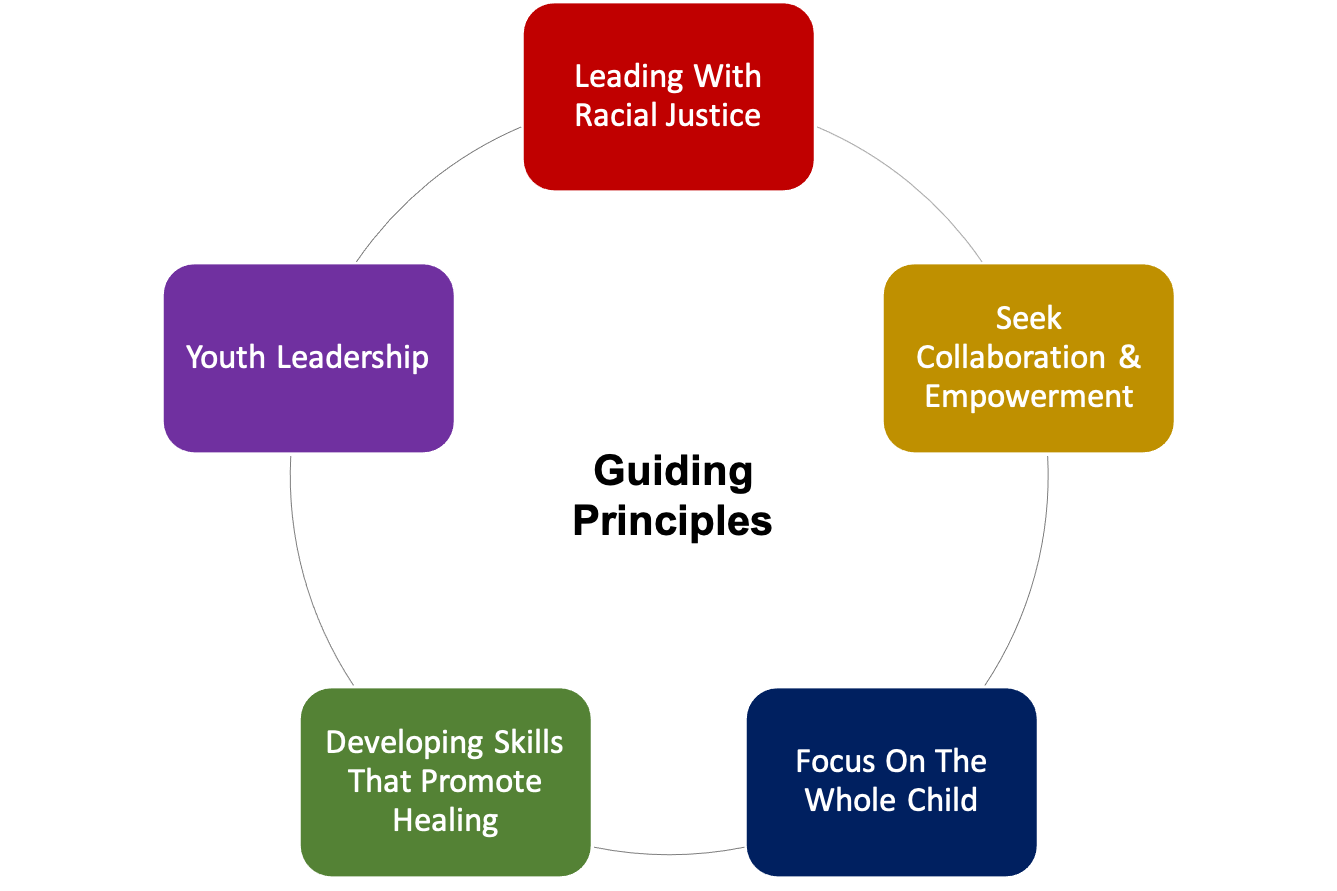
Leading with Racial Justice
Leading with racial justice is critical to reverse the order of the number of BIPOC impacted by systemic racism and to not just confront, but end (stop) the injustices in education that are hindering our community on all levels.
Youth Leadership
Our village provides a liberating, encouraging environment for youth leadership to embrace intergenerational learning and intersectionality where youth lead with voice and action to dismantle and eliminate anti-Blackness, through cultivating courageous conversations as a means of promoting social justice.
Seek Collaboration and Empowerment
We must ensure operations are consistent with its mission and that policies seek collaboration and empowerment in all stages from planning through implementation which is to include our partners as key stakeholders.
Focus on the Whole Child
Our holistic approach is child-focused in providing anti-racist social emotional learning tools and support to restore and release scholars’ brilliance into the world.
Develop Skills and Promote Healing
We work to develop skills and promote healing within institutional spaces in order to create policies that guard the emotional, intellectual, and physical development of human capital and the families being served.
OUR MISSION
Creating authentic partnerships to promote healing-centered culturally responsive practices to build a transformative education system that inspires belief in the brilliance of ALL scholars.

The Liberated Village 5-Star Approach
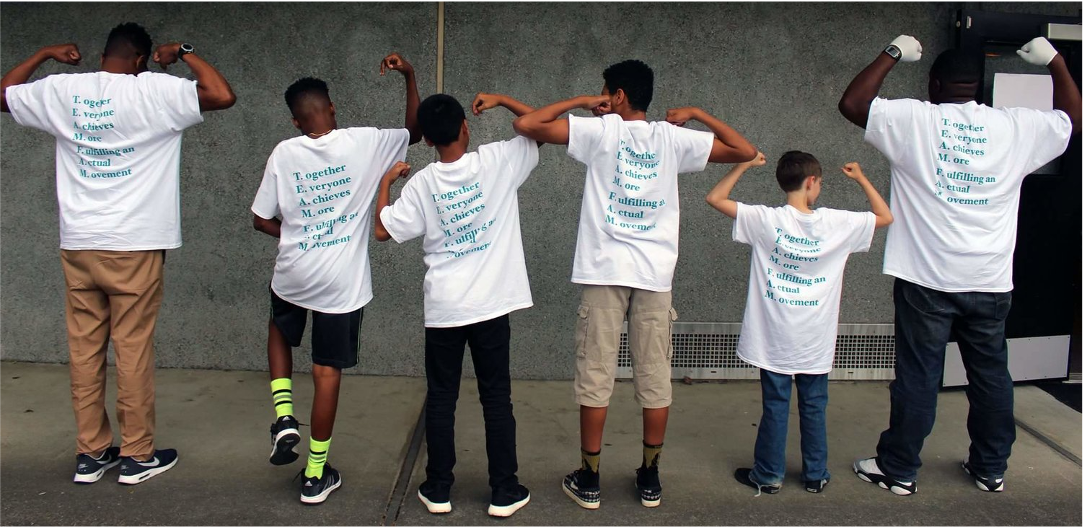
1. The Liberated Village work is grounded in the Power of Belief
The belief that all children and young people can thrive and succeed in environments where communities’ cultures are respected and nurtured. We are partnering with schools and communities to change the narrative to recognize the potential in every child. Together through authentic partnerships, we are building safe, supportive, respectful, and engaging schools and communities.
To achieve this, schools must actively confront racism and other structures of systemic oppression that perpetuate generational trauma. We believe that we must lead with best practices to disrupt and dismantle racism and all other forms of inequities to address the root causes of trauma that negatively impact the self-images and self-worth for many children, young people, and families.
2. The Innovative Approach
BSK’s goal with TIRP village funding is to capitalize on the enormous potential for positive change by supporting and exploring practices that address, repair, restore and support relationship building among schools, districts, scholars, and families.
The strategy’s focus will be to: 1) promote healing environments through healing relationships; 2) build authentic partnerships; and 3) ensure that the voice and experience of communities and families are respected and heard through collaborative decision-making, and through accountable leadership.
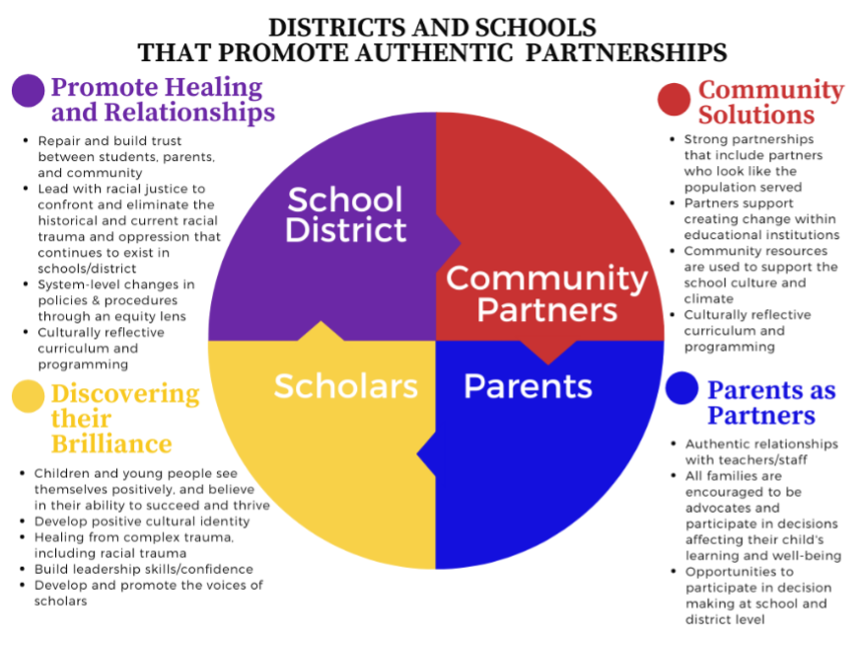
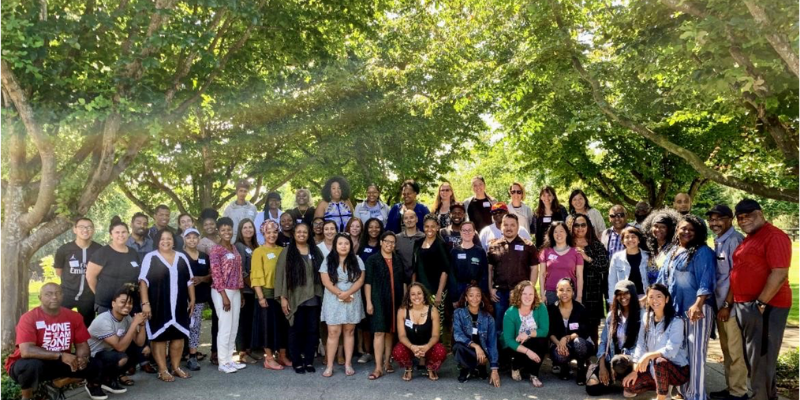
3. The Power of Community Engagement
According to research, opportunities to access and participate in anti-racist services in communities are additional characteristics that promote positive youth development. Bringing those opportunities to the school day will add optimal opportunities for scholars. Mentors, coaches, family members, community members, educators and other trusted adults all play a role in supporting young people’s confidence and belief in themselves.
The availability of caring and authentic community supports (i.e., service providers, community leaders, faith-based organizations, community organizations, parent-led groups) helps children/young people develop a positive cultural identity and strong agency, and ongoing affirmations builds confidence, which is necessary for developing adaptability and successfully engaging with scholar's education.
4. Healing Racial Trauma
Racial trauma plays a heavy role in the miseducation of scholars of color, and racism needs to be clearly identified as a contributor to inflicting trauma on scholars and families within schools and institutions. Racial achievement gaps reflect the systemic impact of historical trauma and ongoing impact of racial trauma on communities of color.
Rarely is revealing and treating the hidden wounds of racial trauma a focal point of intervention; the approach is more often focused on observing children’s behaviors, diagnosing, and clinical treatment.
By leading with racial justice, we are taking on the root causes of our most challenging problems and focusing on where we can have the biggest impact. Addressing the impacts of racism in school environments requires a paradigm shift away from the focus on the behavior of children, to the role of schools, educators, and institutions.
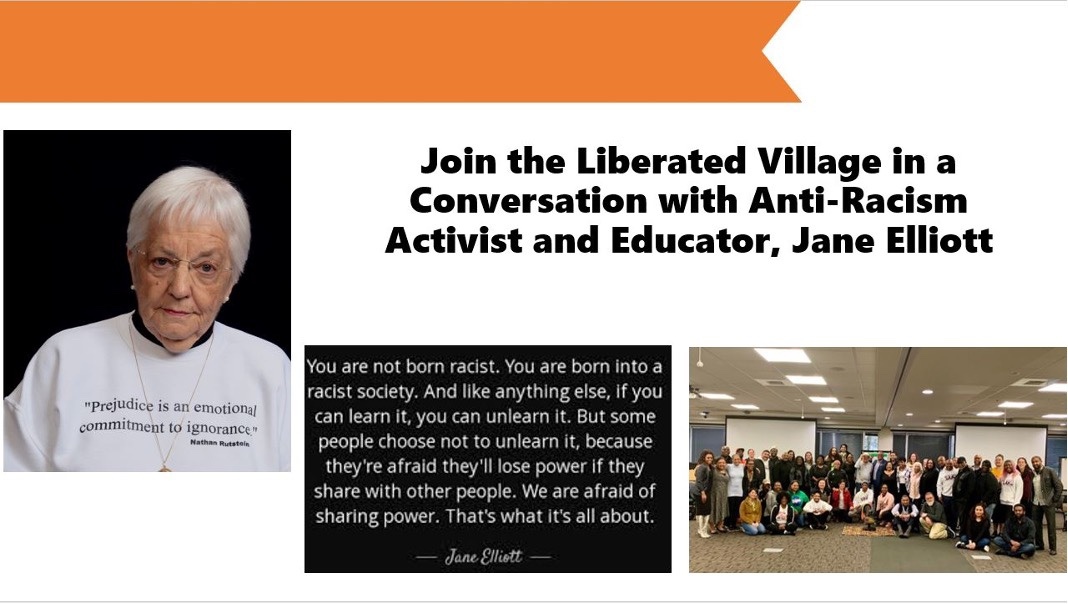
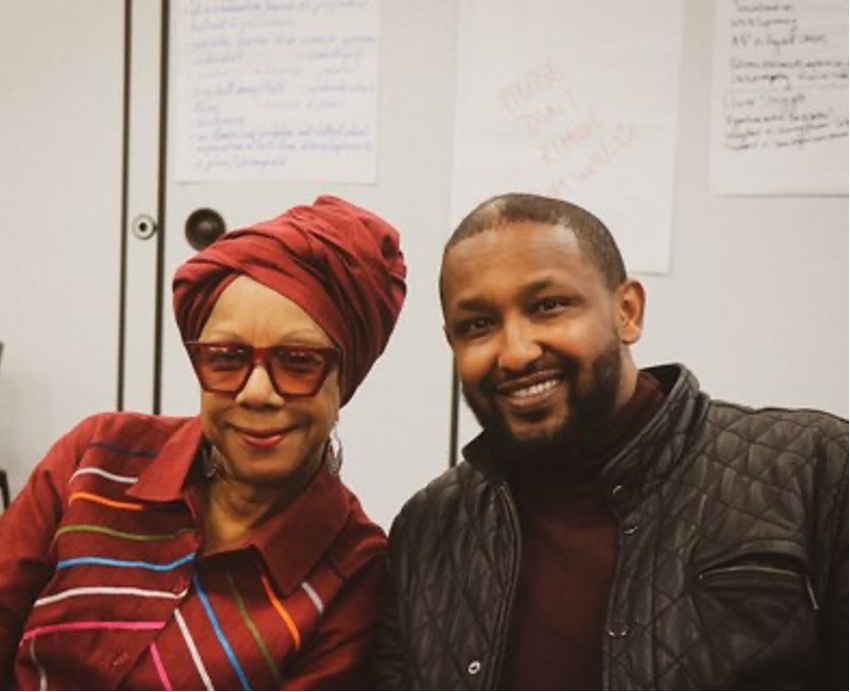
5. Dismantle the school-to-prison pipeline
We work to unveil the truth about racial disparities that persist in our educational system, and the unfair treatment of scholars of color begins in preschool and continues through high school or the point at which a young person disengages from school. There are a disproportionate number of children and youth of color who fail in schools and become trapped in the school-to-prison pipeline and the cycle of treatment, social service, and juvenile and criminal justice systems.
Our goal is that we will interrupt and dismantle the disproportionately high use of punitive and exclusionary discipline practices which currently adversely impact our scholars' outcomes.
We advocate against zero-tolerance policies to create alternative forms of discipline that are innovative approaches to safe school communities, and that rely on restorative justice and community building instead of criminalization.
We utilize healing and restorative approaches to resolve conflict, repair harm, and seek to provide all children with safe and nurturing environments that promote scholars' social, emotional, and academic development.

